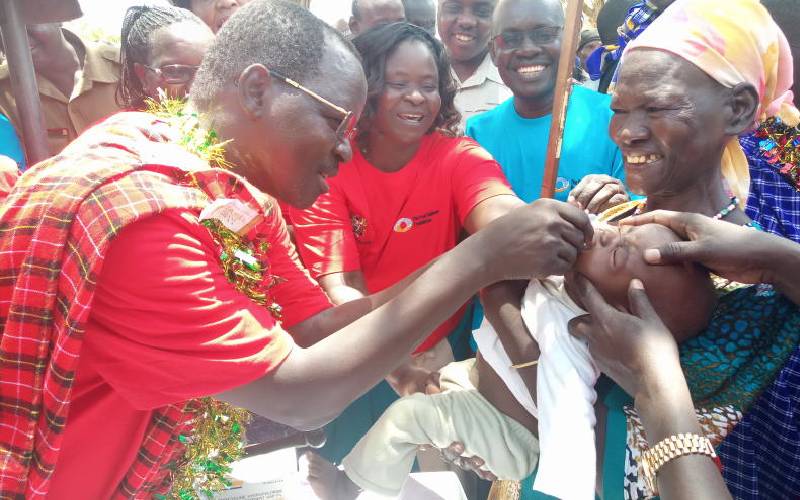×
The Standard e-Paper
Fearless, Trusted News

Governor John Lonyangapuo when he administered trachoma treatment to a two-year-old child at Kacheliba, West Pokot County. [Irissheel Shanzu, Standard]
Health officials in West Pokot and Turkana counties have joined hands with their counterparts in Uganda to fight trachoma.